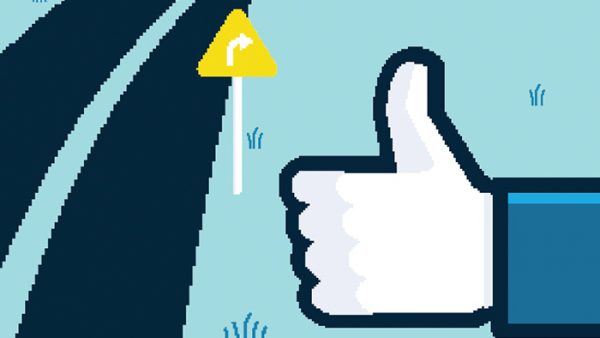
I would never pick up a hitchhiker. I know that person standing by the side of I-80 is probably just down on his luck. My conscience says he probably just needs a ride to Des Moines to get to the state fair. Or a lift to Dyersville to check out the Field of Dreams. But I’m sorry. I’m not going to do it. I’m not going to interrupt my road trip and risk being a murder victim because I think he’s probably a nice person.
No way. I don’t know that guy. I don’t TRUST him.
Here’s a funny thing: I don’t think this way when it comes to the internet. And I’m not the only one. Just about everyone has clicked five “next” boxes right through the fine print. We’ve done it on everything: social media privacy statements; PayPal notices on a shoe purchase; a waiver on an online gaming account.
Just about everyone seems comfortable buying, talking, texting, searching and shopping on the World Wide Web. Waivers? Who cares? Just check the box and move along.
The funny thing is, that doesn’t make sense. Because Americans can be skeptical people. I’m guessing you know at least one person who has updated their will before flying to Florida for spring break.
Last week, Bozell’s own Jim Minge went out on the streets and asked people about their trust in corporations – particularly Facebook. Most conversations went something like this:
Jim: Have you read through Facebook’s terms, conditions and privacy notices?
Friendly Omahan: No.
Jim: Why not?
Friendly Omahan: I dunno! I guess it just takes way too long.
Jim: So you signed a privacy contract that may have compromised your personal data because reading the two-page document would have taken too long?
Friendly Omahan: Well, when you put it that way … Maybe I should have read it. I guess I just trust Facebook.
That’s kind of amazing. We can look at a hitchhiker and assume he probably just needs a helping hand. We can read airplane safety stats and logically think that our plane will land safely. But we don’t care. We don’t easily trust.
But that’s not the case when it comes to the pillars of the internet – Facebook, Google, PayPal, etc. We trust them inherently. Is it that we think they’re well-meaning? That everyone is online and there is safety in numbers? Probably a little bit of everything. The bottom line is that we are willing to do a lot for brands that we trust.
So what do consumers trust about your brand?
Have you given them anything to earn their trust? Have you cultivated a reputation – like PayPal – that makes people assume their data is safe? Have you created a brand – like Volvo – that makes people assume that their family is secure?
Here’s another funny thing: Most people Jim interviewed were embarrassed they didn’t read the fine print. They said they should be more skeptical, especially with Facebook’s recent data problems.
In other words, is your brand like Jim, our Bozeller on the Street? Like he said, he’s a friendly Midwestern guy. His smile, his demeanor, his approach – people trusted him instinctively. It’s the same as when a pilot comes out and shows his face and tells you how and why he’s going to get you there, safely. You begin to trust him more, right?
So, the next time you’re evaluating who your company is as a brand, just ask yourself this: Do your consumers look at your brand like they look at Jim?



